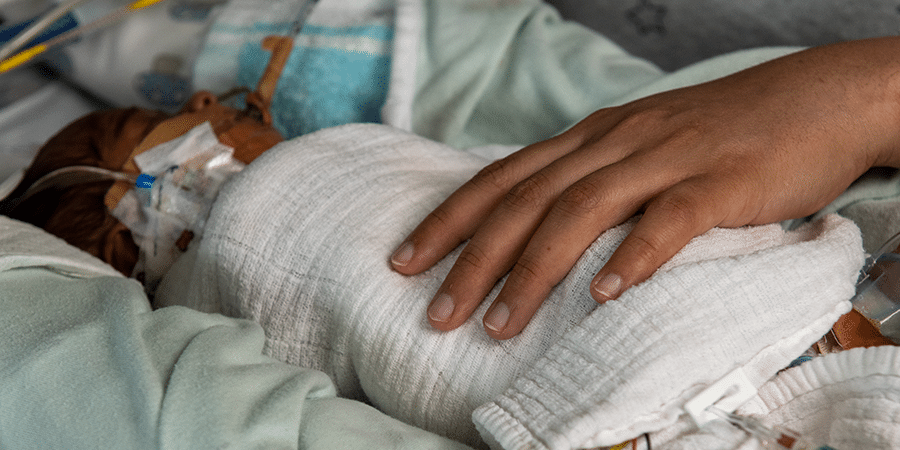
Dr Emily Shepherd led the international team from Australia, New Zealand, France, USA and Denmark, which included Cerebral Palsy Alliance (CPA’s) Senior Research Fellow, Dr Shona Goldsmith.
This comprehensive Cochrane review, co-published in Obstetrics & Gynecology, highlights the critical role of magnesium sulphate in protecting the developing brains of preterm infants.
“This review is a testament to the importance of ongoing support and investment in innovative treatments for cerebral palsy. CPA has proudly supported previous research about this drug which is transforming outcomes for preterm babies around the world. It is encouraging that this study confirms the efficacy of this treatment,” said Professor Nadia Badawi AM, Chair of Cerebral Palsy Alliance Research Institute.
The Cochrane Systematic Review, involving six trials with 5,917 pregnant women and their 6,759 babies, provides robust evidence of the brain-protecting benefits of magnesium sulphate for infants born before 34 weeks’ gestation. The review found that magnesium sulphate reduces the risk of cerebral palsy or death for these vulnerable infants, and likely decreases risk of severe intraventricular haemorrhage (bleeding on the brain).
Dr Emily Shepherd, a Postdoctoral Research Fellow and National Health and Medical Research Council (NHMRC) Emerging Leadership Fellow at the South Australian Health and Medical Research (SAHMRI), emphasised the significance of these findings.
“Our review now demonstrates with high certainty that magnesium sulphate, administered to women at risk of very preterm birth, can reduce the risk of cerebral palsy and death for their children up to two years of age,” Dr. Shepherd said.
Importantly, the review showed that magnesium sulphate does not increase the risk of serious complications for mothers, although minor side effects like warmth and flushing may occur.
Cerebral Palsy Alliance is supporting an exciting new study from Dr. Shepherd and her team, which will continue this research using individual patient data from the trials. “We’re optimistic our findings will lead to updated, consistent recommendations for the use of magnesium sulphate globally. Ultimately, this will help prevent more children from having cerebral palsy,” Dr. Shepherd added.
The current trials have been conducted in high-income countries, and researchers stress the importance of extending these studies to low and middle-income settings to ensure the benefits of magnesium sulphate are universally accessible.
“We are hopeful that new studies will help determine the best ways to use magnesium sulphate for neuroprotection of preterm babies. CPA is committed to ensuring that every child, regardless of where they are born, has the best possible start in life,“ added Professor Nadia Badawi, a practising newborn intensive care doctor who sees the impact of these interventions firsthand.